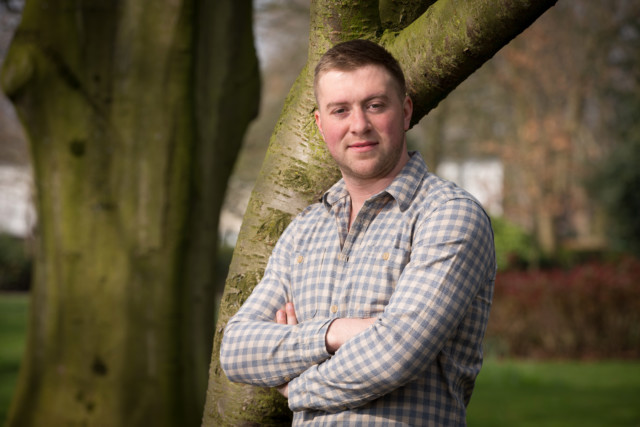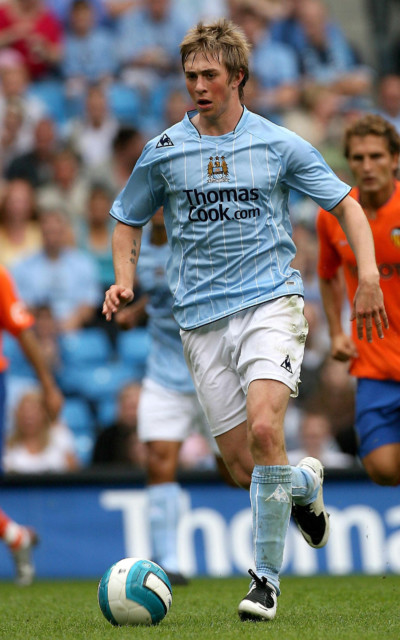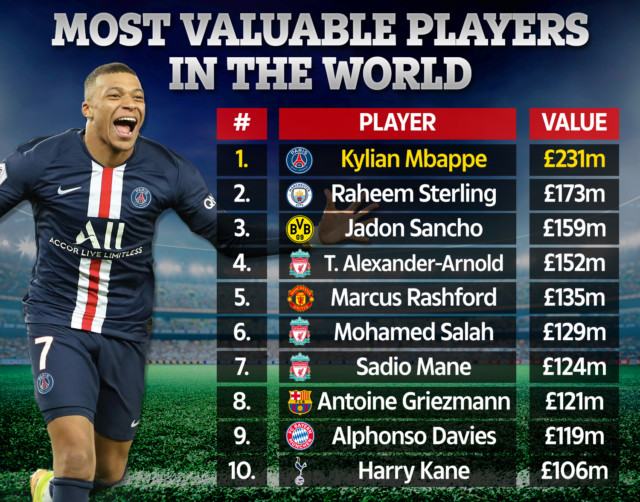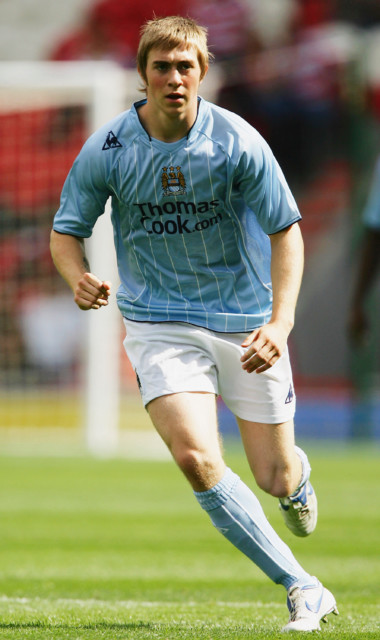FORMER Manchester City star Michael Johnson says it was mental health issues rather than injuries and booze that “turned the light off” on his career.
The now 32-year-old was hailed as “England’s next big star” after breaking into the first-team aged just 18 under Stuart Pearce.
He continued to blossom under Sven Goran-Eriksson with City rejecting a £12million bid from Liverpool for the midfielder’s services in 2008.
Johnson was undoubtedly the jewel in the crown of City’s pre-Abu Dhabi youth set-up, but a succession of injuries to his hamstring, knee and a double hernia brought a halt to his progress.
A battle against depression then followed as his contract was terminated in 2012 with the ex-England U21 international announcing his retirement at just 24.
Johnson asked to be “left alone to live the rest of my life” after calling it quits as he sought treatment at the Priory while he was also issued with a three-year drink driving ban.
Now in a revealing interview with The Athletic he has claimed it was his mental struggles that led to his wasted talent rather than anything physical or inside a bottle.

Johnson said: “My mindset was just really low. Really low. I had no confidence, no self-esteem.
“My way of dealing with it was to play and to be the best. And if I’m the best, I’m worth something.
“Eventually, when I started playing in the first team, when I’d sort of ‘made it’, when I was playing regularly, that motivation that I had… it just went overnight.
“I always thought I was going to feel better about myself by playing football and by being in the first team.
“When I didn’t get that, when I didn’t get that relief, it was, ‘Oh, actually I don’t feel better’.
“That light at the end of the tunnel just went.”

He continued: “I always felt good after the game. There was always that high and that adrenaline.
“The problem for me was the day after — the days after — when that adrenaline went down and it was just back to me being me.
“It was the comedown. I suppose I was looking for it to make me feel better about myself.
“And then when I was out, I would be anxious — scared of people looking at me, scared of someone asking me a question, just nervous.
“And I would be like, ‘I thought it was going to give me all this confidence, being a footballer’. It should have done.
“I had put all my worth on achieving in football. But it sort of had the opposite effect on me.”
1-2-FREE Simply predict Man City, Spurs vs Arsenal and Leicester scores this coming weekend and win £100
Johnson concluded: “I was thinking, ‘Why the hell do I feel like this?’ And it’s not just that I wasn’t feeling better about myself. I was feeling worse than before.
“Suddenly, I didn’t have that hope of getting better. That hope was what had kept me going — thinking that, if I could get into the first team, I would feel better. But that had gone.
“It’s such a flawed way of thinking, isn’t it?
“It was all going to come crashing down when I realised that everything I had been working for was wrong.
“That was like the light at the end of the tunnel disappearing. It was like someone just turned the light off and I didn’t know where to go.”
Johnson was troubled by injuries from an early age but he insists they were not an overriding factor in his career being cut-short.
And even though he admits he did go out too much on the town, he says it was not the enjoyable party lifestyle many believed.
Johnson says: “I was dealing with things the wrong way.
“I had too much free time. I went out too many times, going to nightclubs or whatever.
“It was always to try to feel better about myself. And it was unhelpful. I was going out and having a few drinks as a way of dealing with my emotions, to try to give myself a temporary high and feel good about myself for a short period.
“Maybe people perceived that as, ‘He doesn’t give a f***’, that sort of attitude. But it was the opposite.
“This is the thing with depression. When you’re stuck in that mindset, you find any way you can to try to make yourself feel better.
“I was injured quite a lot. That didn’t help. It’s well known that you can get those natural endorphins by playing and exercising, but, especially after I had surgery on my knee, I wasn’t getting that release either. And that didn’t help.
“But the biggest problem was me — or my feelings. I just didn’t have any self-worth.
“I was going in every day to do my rehab, but I didn’t want to. I didn’t want to get out of bed in the morning.
“It was just another day of putting on this face, trying to get through the day, hoping no one would ask me any questions, hoping no one would look at me when I get my milk and eggs on the way home.
“People would look at me and I would feel anxiety, nerves, all this stuff.”
He added: “It was debilitating. And for someone who’s shy or anxious, going into the public eye isn’t really befitting, is it?
“It was probably down to thinking people were judging me, but it was an instinctive reaction.
“It’s those animal instincts — fears and stuff — and it became so instinctive that I would just be nervous all the time and I couldn’t understand why.
“All of this was in my head. When you’ve got nothing but negative thoughts, it’s a struggle, a daily struggle.”
Despite Eriksson taking him on loan to Leicester, Johnson says his motivation had gone and he returned back to City not wanting to go on playing as he began taking counselling.
While City were enjoying their first title triumph in 2012, twice within the space of three months Johnson was caught drink-driving, earning a lengthy ban and a £5,500 fine.
That summer he checked into the Priory for help.

“It was a relief to go there, I wanted to do it,” he said.
“I’d reached the stage where I needed an arm around me constantly rather than just going to see someone once a week and then being on your own for the rest of the week.
“I needed something more than that. I needed to be around people who were in the same boat.
“Because being at home and dealing with my issues on my own, I just felt trapped.
“I spent two weeks there. I don’t know what people’s perceptions of it are, but there were a lot of good people who had struggled with different issues.
“At first, I was thinking, ‘What if these people know who I am?’ But it was good for me.
“It’s good to speak to people who are feeling the same way you are. I spoke to the doctors every day.”
Finally it emerged the following January Johnson had left City several weeks earlier after his contract was terminated by mutual consent.
And that led to him deciding to call it a day permanently so he could focus solely on his mental health battle.
Johnson said: “Not long after I went to the Priory, I spoke with Brian Marwood at City.
“He was always very good, Brian. He always tried to help me as much as he reasonably could. And it was best for me, for my recovery, if we parted company.
“It was a relief. I knew I couldn’t give my all in football. I needed to sort myself out.
“I knew I couldn’t do the two. I couldn’t be a professional footballer — not a good professional anyway — feeling the way I was feeling.
“It was the right time to leave. And once I left, I knew I could concentrate solely on sorting out my health.”
Johnson would later open a bar, a venture that led to him meeting his wife Jen, with the couple now having a baby together.
After a stint as an estate agent, he revealed his main business interest these days is running a car dealership with his father.

